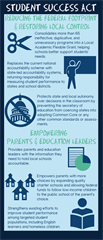Why Don’t Americans Know What Really Happened in Vietnam?
February 9, 2015
A napalm strike erupts in a fireball near US troops in South Vietnam, 1966 during the Vietnam War. (AP Photo)
This article originally appeared at TomDispatch.com. To stay on top of important articles like these, sign up to receive the latest updates from TomDispatch.com.
The 1960s—that extraordinary decade—is celebrating its 50th birthday one year at a time. Happy birthday, 1965! How, though, do you commemorate the Vietnam War, the era’s signature catastrophe? After all, our government prosecuted its brutal and indiscriminate war under false pretexts, long after most citizens objected, and failed to achieve any of its stated objectives. More than 58,000 Americans were killed along with more than 4 million Vietnamese, Laotians, and Cambodians.
So what exactly do we write on the jubilee party invitation? You probably know the answer. We’ve been rehearsing it for decades. You leave out every troubling memory of the war and simply say: “Let’s honor all our military veterans for their service and sacrifice.”
For a little perspective on the 50th anniversary, consider this: we’re now as distant from the 1960s as the young Bob Dylan was from Teddy Roosevelt. For today’s typical college students, the Age of Aquarius is ancient history. Most of their parents weren’t even alive in 1965 when President Lyndon Johnson launched a massive escalation of the Vietnam War, initiating the daily bombing of the entire country, North and South, and an enormous buildup of more than half a million troops.
In the post-Vietnam decades, our culture has buried so much of the history once considered essential to any debate about that most controversial of all American wars that little of substance remains. Still, oddly enough, most of the 180 students who take my Vietnam War class each year arrive deeply curious. They seem to sense that the subject is like a dark family secret that might finally be exposed. All that most of them know is that the Sixties, the war years, were a “time of turmoil.” As for Vietnam, they have few cultural markers or landmarks, which shouldn’t be surprising. Even Hollywood—that powerful shaper of historical memory—stopped making Vietnam movies long ago. Some of my students have stumbled across old films likeApocalypse Now and Platoon, but it’s rare for even one of them to have seen either of the most searing documentaries made during that war, In the Year of the Pig and Hearts and Minds. Such relics of profound antiwar fervor simply disappeared from popular memory along with the antiwar movement itself.
On the other hand, there is an advantage to the fact that students make it to that first class without strong convictions about the war. It means they can be surprised, even shocked, when they learn about the war’s wrenching realities and that’s when real education can begin. For example, many students are stunned to discover that the US government, forever proclaiming its desire to spread democracy, actually blocked Vietnam’s internationally sanctioned reunification election in 1956 because of the near certainty that Vietnamese Communist leader Ho Chi Minh would be the overwhelming winner.
They’re even more astonished to discover the kind of “free-fire zone” bloodshed and mayhem the U.S. military unleashed on the South Vietnamese countryside. Nothing shocks them more, though, than the details of the My Lai massacre, in which American ground troops killed, at close range, more than 500 unarmed, unresisting, South Vietnamese civilians—most of them women, children, and old men—over a four-hour stretch on March 16, 1968. In high school, many students tell me, My Lai is not discussed.
An American Tragedy
Don’t think that young students are the only products of a whitewashed history of the Vietnam War. Many older Americans have also been affected by decades of distortion and revision designed to sanitize an impossibly soiled record. The first step in the cleansing process was to scrub out as much memory as possible and it began even before the US-backed regime in South Vietnam collapsed in 1975. A week before the fall of Saigon, President Gerald Ford was already encouraging citizens to put aside a war that was “finished as far as America is Why Don’t Americans Know What Really Happened in Vietnam? | The Nation:


















